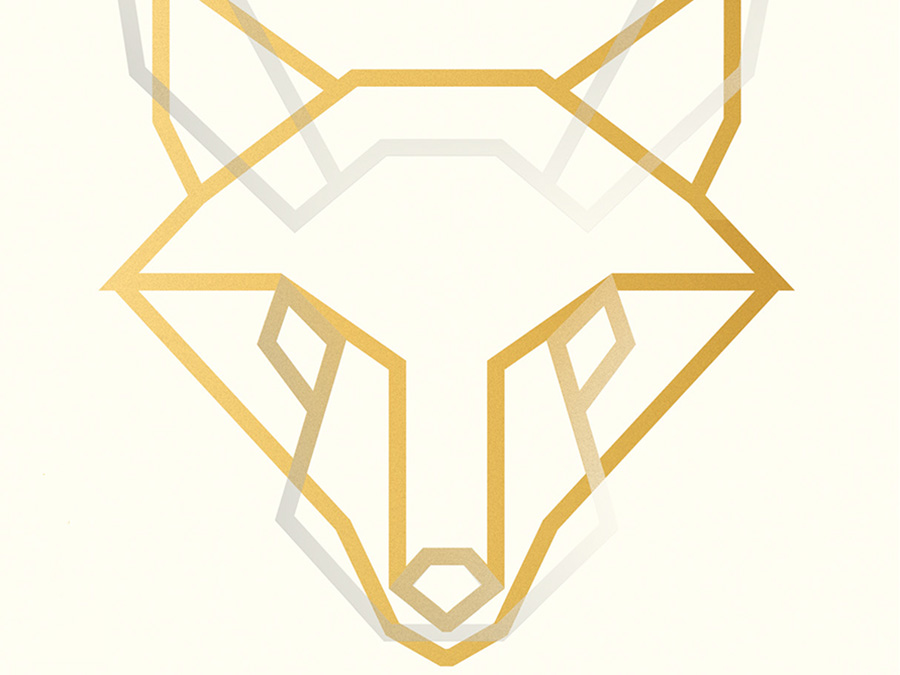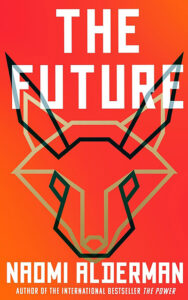What kind of future do we want? How would it look if it was based on trust instead of fear? For a novel that starts with the end of the world, The Future has a lot of interesting things to say about our possible futures.
The Future is a pretty big title to give to a novel. And in case you were in any doubt about the bigness of the themes, the first line starts with:
“On the day the world ended…”
Naomi Alderman has not written a post-apocalyptic novel about people eating each other amid the wreckage of our cities, however. It’s a much more hopeful book than that. It looks the end of the world dead in the eye, as I think any novel about the future must in these times of runaway climate change and irresponsible, war-mongering leaders, but it concerns itself more with the question of how we avoid it than how we survive it.
Alderman takes us back to the times before the day the world ended and shows us several strands, some involving three immensely powerful tech billionaires, others involving people close to them but emotionally estranged from them in various ways (the wife of one, the child of another, the executive assistant of the third), and another involving a tech survivalist/influencer called Lai Zhen who’s being shot at for reasons she doesn’t understand.
Those strands take a long time to come together, but when they do eventually converge, they do so in a satisfying way. There’s a major plot twist which I can’t reveal without ruining the book for some people, so I’ll stay away from it and just say that it’s worth persevering with all those separate strands.
Also interspersed throughout the book are extracts from a survivalist forum, many of them with religious overtones: discussion of Old Testament stories and of the teachings of a cult leader who’s connected with a couple of the main characters.
A lot of these discussions, and a lot of the points of action and character development in the book, are centred around the tension between fear and trust.
The tech billionaires have lived their lives based on fear: facing an uncertain and potentially dangerous future, they’ve chosen to defend themselves by accumulating wealth and property, walling themselves off from the world, creating bunkers to survive the apocalypse. The hugely powerful platforms and businesses they’ve built are based on the same instinct and consequently end up amplifying and monetising fear and anger among their customers and users.
The other characters, in various ways, choose the riskier but more rewarding route of choosing to trust. They love, they confide, they open themselves up to being hurt. There are several beautiful passages on trust, such as this:
“How does trust build between people? It is an offering and a receiving. It is putting yourself into the position to be hurt, just a little, and noticing that they refrain. It is the reaching out between people, laughing at the same moment. It is building a model of the other person inside yourself, placing them in the palm of your hand, rotating them and saying: Yes. I see the flaws and I see the dangers and nothing will happen here that will truly harm me. And it is saying: I would rather trust you than be alone.”
In the words of the cult leader, the fear/trust dynamic is an age-old struggle that goes back to the Bible and reflects the changes of the agrarian revolution. He says human beings lived for millennia like foxes, roaming freely and just taking from nature what little we needed to survive. But a few of us became so afraid of what would happen if we ran out of resources that we began to hoard, to fence off land and call it our own, to plant seeds to protect against future shortages. We worked harder and were constantly afraid, but we had more security. These people he calls rabbits.
Today, sedentary Rabbit has more or less conquered nomadic Fox. The vestiges of our earlier way of life linger only in some indigenous peoples and other nomadic groups, all of whom have been persecuted with a savagery that reflects Rabbit’s constant fear of Fox.
As the novel builds towards its denouement with the end of the world and that accompanying plot twist, the Fox/Rabbit dynamic again plays a central role. Will openness, fluidity and trust win, or will fear, suspicion and selfishness be more beneficial when the end of the world comes? The answers are surprising and go against the current of many end-of-the-world novels, but they’re also quite convincing.
Although I’d say The Future is a literary novel in which ideas and plot are more important than character development, the characters are still believable. Naomi Alderman is too good a writer to allow them to become mere representatives of different points of view. They exist as real, living people, and we care about what happens to them, even as we also consider bigger ideas about the future of the planet.
I didn’t entirely buy the ending of the book or the implication that we could avoid the end of the world with just a few changes of attitude and some different personalities in positions of power—I happen to think the issues go much deeper than that. But I did appreciate the way that this novel made me think about the problems we’re facing while following a mostly page-turning plot. I’m glad I read it, and I’d recommend it to anyone who wants to see our possible futures battle it out to an Old Testament soundtrack.





There are 6 comments
Sounds interesting. Thanks ?
Thanks Ashen, good to hear from you!
Thanks for the review. I liked The Power but I’ve been on the fence about this one, but it sounds pretty good 🙂
Yes, I think you’d like it, Stefanie. As I mentioned, I didn’t entirely buy into the ending or some of what the book’s plot implied, but I found it thought-provoking and highly engaged with some important current and future issues.
She’s someone I think I’d enjoy, but whenever I’ve picked up The Power, I’ve gotten distracted, so I have been listening to intervews and discussions about this one, but hadn’t really seriously considered reading it. Your comment about its resolution is a sentiment I’ve heard expressed before, but I’ve also heard a couple of really positive responses to the ending…that actually makes me really curious because how we feel about the hope/despair slant, regarding this topic, is so complex and interesting and, maybe, revealing about what motivates us as people facing this crisis?
Right now, I’m reading Kim Stanley Robinson’s Ministry of the Future, which I actually had a similar problem with, over several years, in that I would only read a few pages and set it aside. (Similar, but not the same, in Alderman’s I felt disconnected, in Robinson’s I felt too connected.) This kind of reading still occupies a space in my stacks, but not as prominent as in past years, and I was just thinking about that while reading Robinson…I would like to resume the habit more devotedly.
Hi Marcie, Yes, I can see how the ending would divide readers. I think Alderman is something of a tech optimist, which comes across in this book despite all its criticisms of how Big Tech works currently, and perhaps that’s where we part company. I loved the big plot twist towards the end, but the actual ending felt a bit too easy.
Ooh, I read The Ministry for the Future last year and named it as one of my best books of the first half of the year: https://andrewblackman.net/2023/07/best-books-ive-read-so-far-this-year/. I wanted to write a full review but then got knocked completely off course. I’ll be interested to read your thoughts on it!